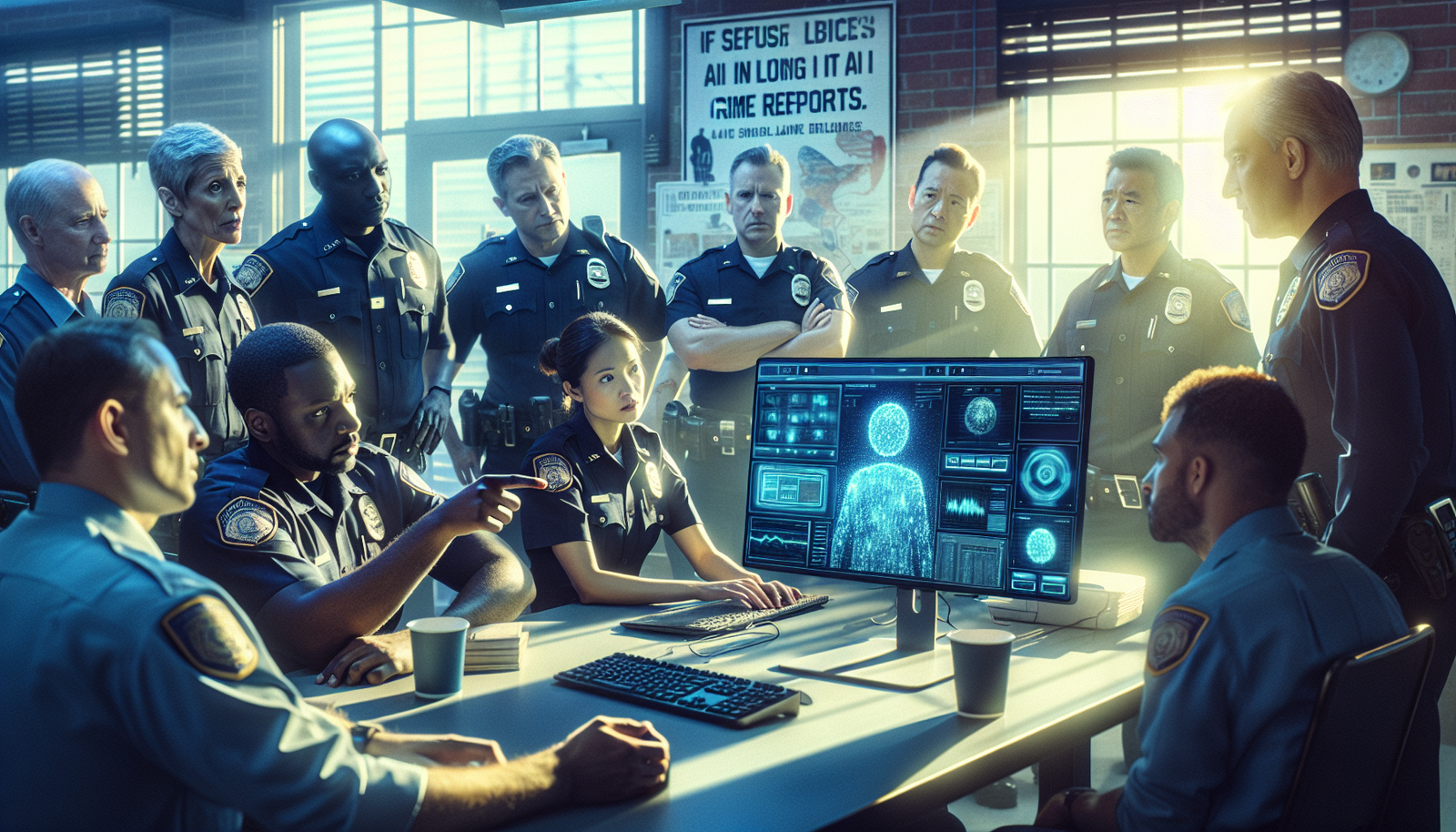Artificial intelligence is establishing itself as a key player in the American policing field, redefining traditional reporting methods. Law enforcement agencies are adopting AI tools to streamline report writing, sparking a passionate debate about its ethical and practical consequences. *The evolution of police reports* towards increased automation carries significant challenges, such as accuracy, accountability, and transparency. This transformation is accompanied by fears about the potential for a *deterioration of trust* between the police and the community. *The impact of these innovations* raises crucial questions concerning justice and civil rights protection.
Artificial Intelligence in Police Reports
In the United States, the emergence of artificial intelligence in police documentation methods is generating debates. Law enforcement agencies increasingly face the need to innovate in response to ever-growing volumes of data and reports. Several police departments, such as those in Fort Collins, Colorado, are experimenting with chatbots to draft official documents. Efforts to lighten the administrative burden on officers are being highlighted, but challenges remain.
Technological Innovation and Functionality
The tool developed by the Axon group, known for its history as a Taser manufacturer, occupies a central role in this trend. This AI system generates reports from key information provided by officers. In this way, AI aims to facilitate writing, a task often deemed tedious by personnel. However, despite this advancement, notable incidents occur when the system fails to interpret complex data or manage more delicate situations.
Risks Associated with AI
Every technological innovation comes with its share of risks. A report by Europol examines the challenges associated with the use of artificial intelligence in police operations. Concerns from civil rights advocacy organizations highlight potential abuses or errors that may arise from the automated use of tools. This raises questions about the reliability and integrity of reports generated by algorithms. Excessive surveillance risks compromising civil liberties.
Towards Gradual Adoption
The transition to AI-assisted methods does not occur without reluctance. While some police officials applaud the time savings achievable, others view it as a threat to the profession. Axon, for example, advises against using this technology for serious incidents, such as shootings. The most sensitive cases should remain at the discretion of a professional to ensure human judgment in critical situations.
Future Perspectives
As the capabilities of artificial intelligence continue to advance, law enforcement agencies are questioning the future of their profession. AI, with its undeniable benefits, could transform many aspects of criminal investigations. Proposals are emerging, suggesting that AI could even assist in other areas, such as social media monitoring, for predicting criminal behaviors. The challenge lies in ensuring the ethical use of these technologies while preserving individual rights.
Impacts on the Police Profession
The police landscape could radically change under the influence of these new technologies. Police officers could spend more time on field tasks rather than on drafting lengthy reports. This reorientation towards proactive activities could improve the relationship between the police and the community. However, the need for a strong framework for algorithms remains a top priority to avoid any slippage.
Questions and Answers Regarding the Impact of Artificial Intelligence on Police Reports in the United States
How does artificial intelligence assist in the writing of police reports?
Artificial intelligence contributes to the writing of police reports by automating the process, allowing officers to save time on documentation and focus on investigations and field interventions.
What are the main risks associated with the use of AI in police report writing?
Risks include potential errors in generated reports, a lack of nuance in understanding incidents, and concerns regarding the transparency and objectivity of decisions made by algorithms.
Can AI-generated reports completely replace the work of police officers?
No, AI-generated reports are intended to assist police officers but cannot replace the human understanding of incidents and the ability to assess critical contextual elements.
What types of data are used by AI systems to write police reports?
AI systems use a combination of structured data, such as incident records, as well as unstructured data from testimonials, investigations, and other relevant sources.
How are artificial intelligence algorithms evaluated for their accuracy in writing reports?
AI algorithms are evaluated by comparing generated reports with those written by human police officers, measuring criteria such as accuracy, completeness, and compliance with guidelines.
Are there restrictions on the use of AI in police report writing in the United States?
Yes, many police departments have implemented internal policies to regulate the use of AI, especially in sensitive cases such as homicides or police violence where ethical decisions are paramount.
What is the role of ethics in the use of AI for police reports?
Ethics is crucial, as the use of AI must ensure fairness, transparency, and protection of civil rights, while avoiding biases that could unjustly influence reports and investigative decisions.
How can citizens ensure that the use of AI in policing is responsible?
Citizens can hold police agencies accountable for their AI usage protocols, participate in community forums, and support legislation that demands transparency and accountability in the use of AI.
What are the future implications of AI on police report writing?
In the future, AI could improve the accuracy and efficiency of police reports, but this will require ongoing oversight to prevent abuses and ensure that AI is used ethically and judiciously.






